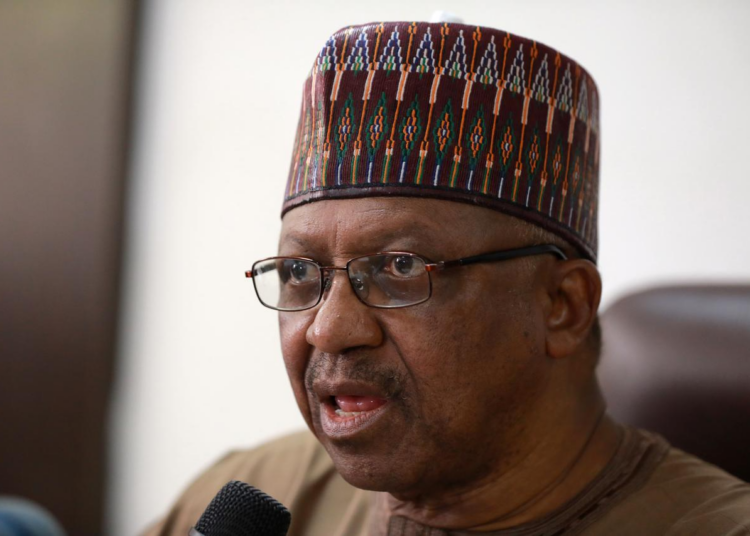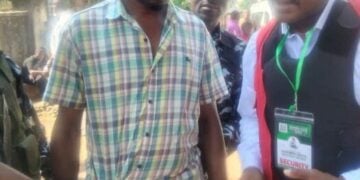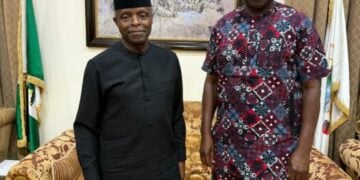Currently engaged in a five-day warning strike over working conditions, resident doctors are beginning to speak out on the moral and ethical burden of having to choose between their welfare and patients who are on life support, are in desperate need of medical care or urgently need surgery.
During social unrest, in war and in peace, it is almost unheard of for doctors and health workers to walk out on their patients; those that are chronically ill, in intensive care and dying.
It is part of the oath doctors take, which reads; “I will remember that there is art to medicine as well as science, and that warmth, sympathy, and understanding may outweigh the surgeon’s knife or the chemist’s drug.”
That warmth however appears to be a missing element whenever resident doctors in Nigeria decide to embark on industrial action leaving patients to their own defenses.
Though resident doctors often act as support staff for consultants during surgeries and medical procedures, patients who had appointments for operations have had them cancelled and are uncertain when the procedures will take place.
But Mariam Azu, a patient in her early 30s at the Federal Medical Centre in Asaba, Delta State told our correspondent that her surgery slated for May 18 was not carried out due to the strike.
“I am going through severe pains. I have to take at least two injections every day to survive the pain. I wish I could afford a private hospital,” she said.
There are many more patients in similar shoes.
The President of Nigerian Association of Resident Doctors (NARD) Federal Medical Center (FMC) in Yenagoa, Dr. Mbooh Romeo believes that people are always criticizing doctors for going on strike and ignoring the health conditions of patients in the hospitals, without considering that doctors will not be able to attend to the patients if they are not well taken care of psychologically, emotionally and physically.
He emphasized that the new physician’s oath that was put forward by the World Medical Association has undergone a lot of reviews over the years supporting the idea that the care of a doctor is also critical.
He said, “I understand clearly from the angle you are coming out from. In the time past, people will always want to attack the doctors that we are always going on strike, that we are not showing concerns over people’s health. We understand clearly, it is a natural law that people will always look out for who to blame.
“But I want to make us understand that a doctor in Nigeria is on average, a poor man. Apart from your salary, once it comes everything is off and we have dependents. We have people we are depending on at the level of the family, at the level of extended family, at the level of nuclear family and of course, our corporate social responsibility.
In Yobe, one of the northeast states that have been hardest hit by the Boko Haram insurgency has had healthcare services deteriorate over the years leaving its people desperate.
This is one reason the Yobe State wing of the National Association of Resident Doctors has given for not joining the five-day warning strike embarked upon by the national body throughout the country.
An official of NARD in the state also spoke on the desperate situation of the weak and elderly as well support from the state government as reasons for not joining the strike.
The president of the association in Yobe State, Dr. Mai Bukar Kalli, disclosed this to LEADERSHIP Sunday shortly after a meeting with the Secretary to the State Government Alhaji Baba Mallam Wali mni in Damaturu
According to him, the administration of Hon Mai Mala Buni has been meeting most of the demands of the union especially on the provision of the state of the art equipment and improved condition of service.
Dr. Kalli said the Yobe is one of the states recuperating from the effects of Boko Haram insurgency, which created setbacks in many sectors including healthcare, hence joining the warning strike would only create more harm to the post-insurgency recovery process in the health sector.
He further said most of the members of the association in Yobe State are being sponsored by the state government and are not complaining of being abandoned as the case in many places.
He added that, “We are right now in a very hash weather with heat waves that aggravate the condition of the weak and aged people as well as those with ailments that require serious medical attention, which joining the warning strike would create more hardship to their already deteriorating condition.”
Yobe is however not the only place where resident doctors in state own hospitals are not joining the nationwide-wide strike.
While NARD members have downed tools, doctors at the state-owned hospitals in Sokoto are preoccupied and overwhelmed with patients relocating from UDUTH, to state hospitals in search of treatment.
The decision of NARD members not to be part of the warning strike is that, the state government is up to date in the payment of their salary and other entitlements.
This Dr Uzairu Abdullahi, NARD chairman at the Usmanu Danfodiyo University Teaching Hospital, Sokoto corroborated when he told our correspondent that, “our colleagues who are employees of Sokoto State Government in the state hospitals did not join the strike as, they are not owed salary or other entitlements across all the state hospital.”
In Rivers State, there are two teaching hospitals; the Rivers State University Teaching Hospital (RSUTH) and the University of Port Harcourt Teaching Hospital (UPTH).
However, while resident doctors in RSUTH refused to join the five-day warning strike embarked upon by NARD, their colleagues in the UPTH did.
In Osun, while the Obafemi Awolowo University Teaching Hospital, Ile-Ife and its affiliates fully complied with the order for industrial action by the national body of the association on Wednesday, their Osun State University Teaching Hospital counterparts abstained from the strike action.
But in federal government owned hospitals, striking doctors are being forced to navigate their conflicting interesting of demanding better working conditions and caring for their patients who do not have to luxury of waiting before getting treatment.
According to NARD chairman, University of Calabar Teaching Hospital (UCTH), Calabar, Dr. Calab Ekuri, as much as doctors have a moral obligation to save lives, they also have a responsibility to take care of thier immediate families as well as pay for childrens’ education and cater for the needs of thier families.
He said that as doctors, they also deserve better remuneration just as thier counterparts in other fields of human endeavor who get good pay from the coffers of government to enable them cushion the effects of the harsh economy.
Dr Ekuri said, “We must save our lives first before trying to safe the lives of patients. As doctors are we not also subjected to the hard economy?
“Does increament in the high cost of living not affect us? Don’t we have children and aged parents to take care of. By the way, you are talking about brain drain, we are also facing psychological and emotional stress.
“Just as it affects our patients,its also affects the doctors. Agreed, the lives of patients come first. What I am saying is that what is worth doing is worth doing well,” the doctor said.
He added that all what the resident doctors are fighting for is to prevent the medical sector from suffering total collapse.
A senior surgeon and consultant at University of Uyo Teaching Hospital, who does not want his name in print said, “No medical doctor could deliberately go out of his or her way to shy away from saving lives, which is our first line charge in medical practice.
“Rather than blaming us for lack of sympathy or empathy for patients under the threat of death, the governments, who have constantly demonstrated their disdain in matters of public health should be the ones to blame.”
Expressing their resolve not to back down, the President of the UUTH chapter of NARD, Dr. Margaret Egan Erhunmwunsee, said the striking doctors are hamstrung by collapsing health infrastructure, shortage of professional health workers and government’s refusal to engage new ones to replace those seeking greener pastures abroad.
Patients On The Move
Speaking to LEADERSHIP Sunday, the Public Relations Officer of Federal Medical Centre in Yenogoa, Bayelsa, Mr. Akpedi Bernard said any industrial action by any group of medical staff in FMC, which is the major hospital in Yenagoa, is a sad one.
He said, “Currently, some patients got themselves discharged but the management has been able to call a consultant and corps members, doctors as well as house officers to put in extra time to ensure that we attend to a very critical patient that couldn’t be discharged. So that’s how we are managing and we just hope that the strike gets over so that we can come back to work fully.”
Yet, patients grappling with chronic ailments in public hospitals in Akwa Ibom State including state and federal medical centres, are being forced to seek alternative care from other health professionals in private practice, or risk losing their lives.
Although some skeletal services on minor health issues were attended to at some state government health facilities including Anua General hospital, Uyo, health services at the University of Uyo Teaching Hospital (UUTH) were grounded, with medics withdrawing their services in total compliance with the strike called by NARD.
“I think I will return to my mother in my community, Ibiaku Ntuk Okpo, Ikono Local Government Area, for her to take me to the traditional birth attendant because my delivery date is due any time from next week, according to the last check at the UUTH,” a pregnant woman, who identified herself as Uduak, lamented.
Other patients under critical conditions, including diabetes patients under dialyses, it was learnt, are the worse hit, as the medics have downed tools to observe the strike.
In Nasarawa, resident doctors were absent at the state government-owned Dalhatu Araf Specialist Hospital located in Lafia, the state capital despite large turnout of patients.
A nursing mother, Mrs Halima Tanko said she had returned to the facility to get medical attention for her set of twins, but couldn’t do so due to absence of doctor to attend to them.
She said, “I gave birth to the set of twins a few days ago. I brought them to the hospital because they are having some health issues but there is no doctor to attend to them. I am appealing to government to listen to the demands of the doctors in our own interest.”
Also, Malam Baba Audu, an 80-year old man who is suffering from toothache said: ” I have been suffering from tooth ache. I have an appointment with the doctor to receive medical attention but on reaching the hospital I was told the doctors have gone on strike. I cannot afford the medical bill at a private hospital.”
The nationwide warning strike embarked by NARD, across the country is impacting negatively in the Healthcare delivery system of Imo state as patients groan due to lack of attention in the Federal University Teaching Hospital, FUTH, and lack of funds to access Healthcare in the private hospitals.
Relatives of patients are left with no option than to access medical care in the private hospitals with its attendant high cost. This may result to deaths as most impoverish patients finds it difficult, if not impossible to access healthcare elsewhere.
A visit to the Federal University Teaching Hospital, Owerri, (FUTH), presents gloomy scenario as the other doctors working in the facility appears overwhelmed by the volume of patients.
Most patients were seen lying quietly on their beds not knowing where help will eventually come from as they are not in a position to help themselves.
Speaking, one of the patients, Nnamdi Uwakwe lamented the lack attention as the strike has affected him drastically without Doctors attention.
He appealed to the federal government to resolve the issues with immediate effect, so as to reduce the work load on other doctors
According to him, he does not have the capacity to transfer to private hospital due to lack of funds.
His words, “I am in a pitiable condition, the hospital does not have enough medical personnel to attend to us as a result of the warning strike.”
However, it was observed that most relatives of patients in the FUTH have moved their loved ones out of the hospital to private clinics as a result of the strike action.
A middle-aged man, who was noticed moving his mother on a wheelchair through the gate of the facility, Clement Asonye said they were heading to a private facility in the Abia State capital.
Disclosing that the mother had been at the facility for over three weeks, he said, “We’re moving out because as you can see her condition is not friendly and the consultants are overwhelmed with patients”.





